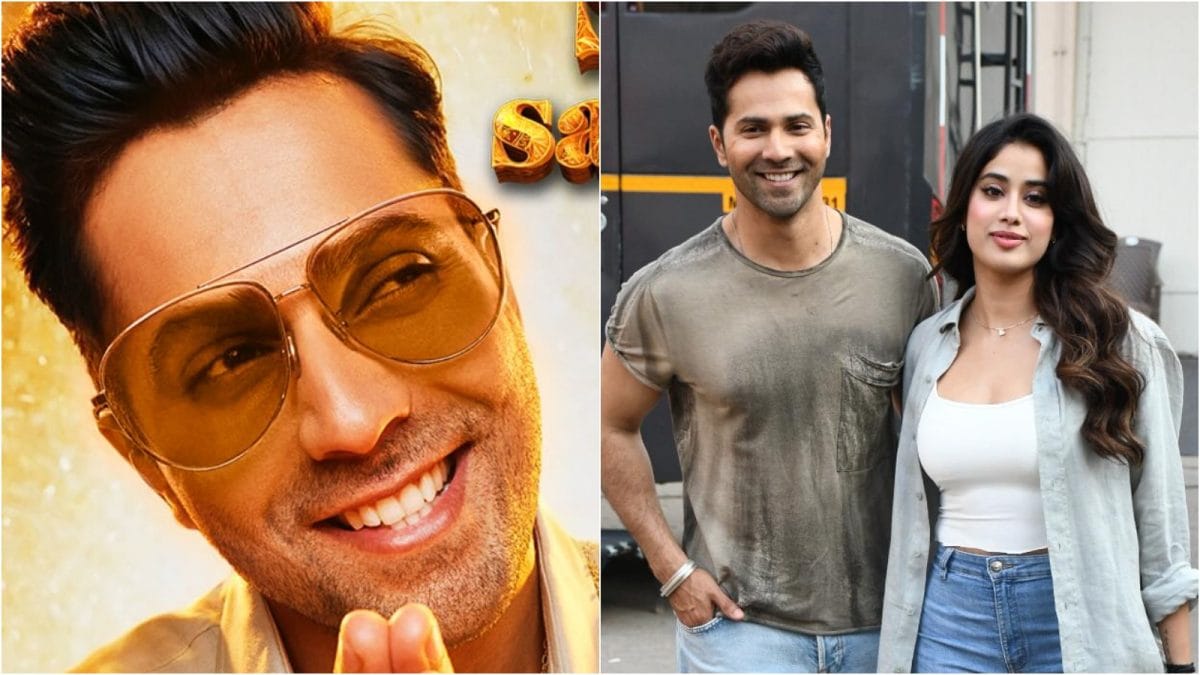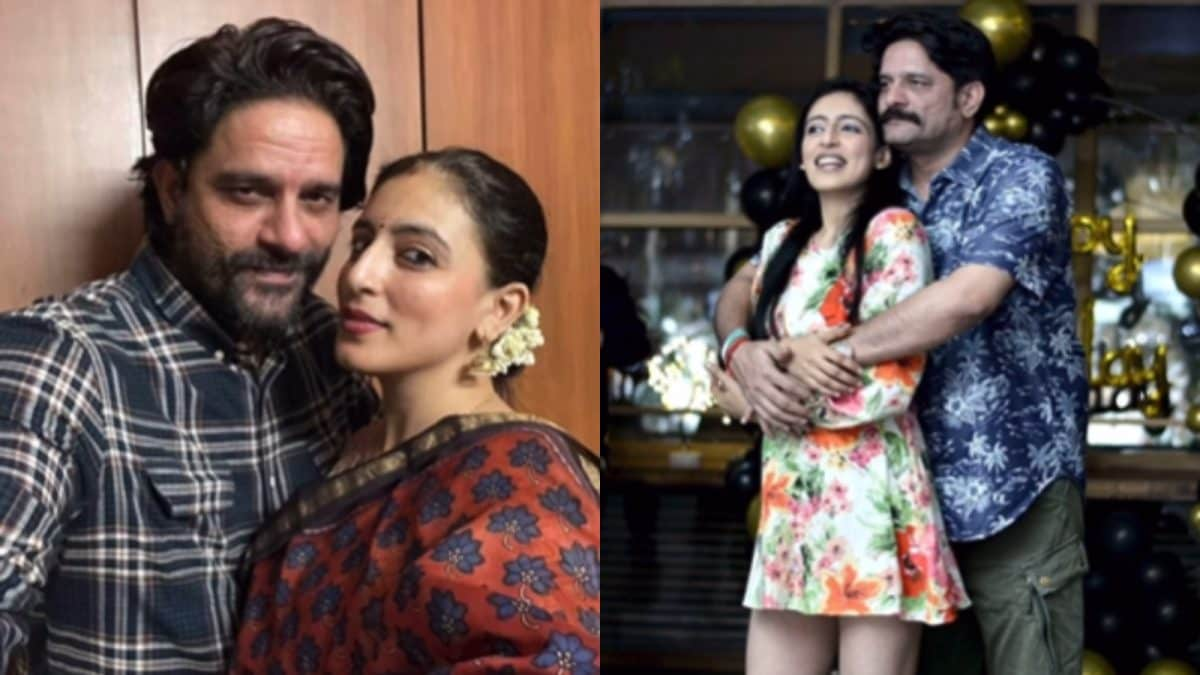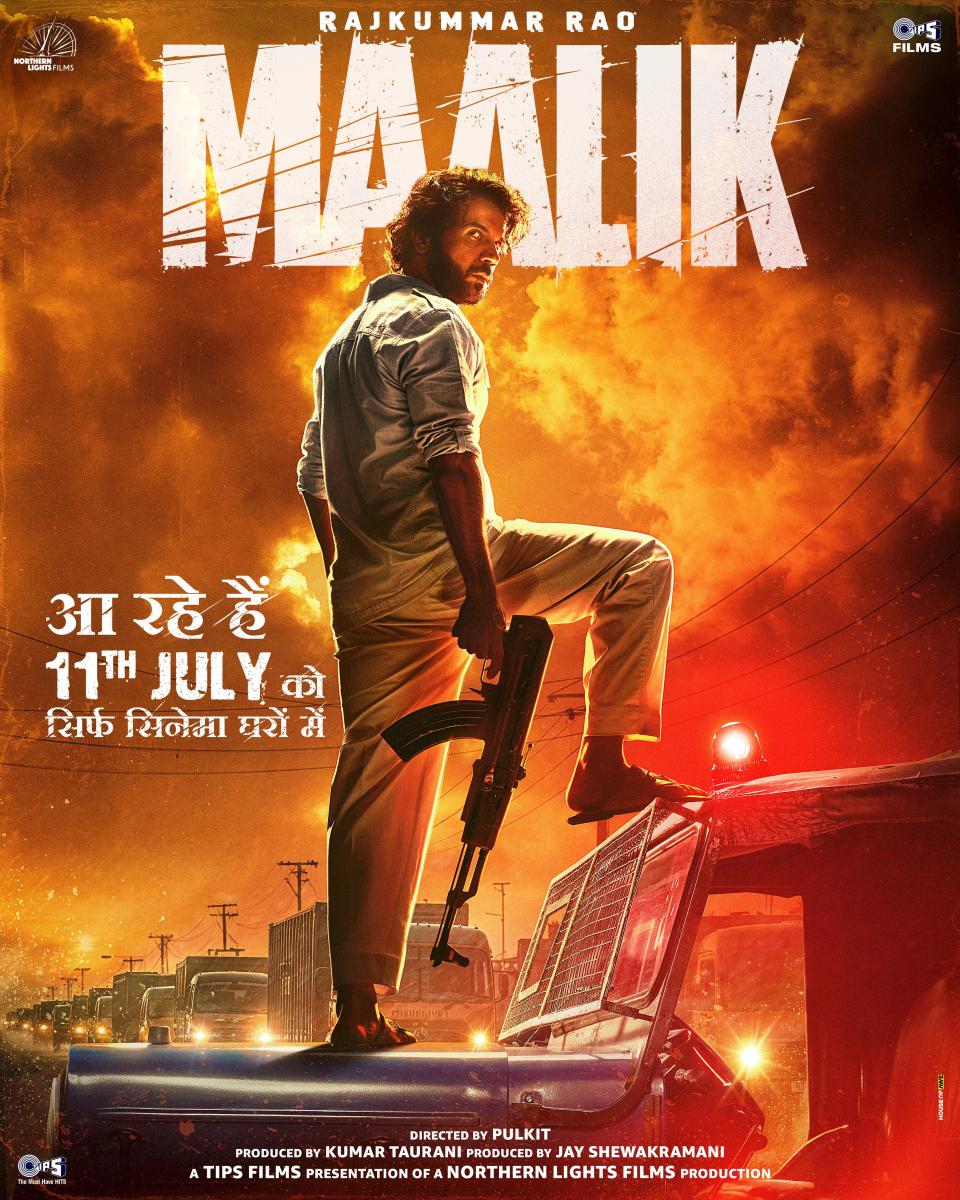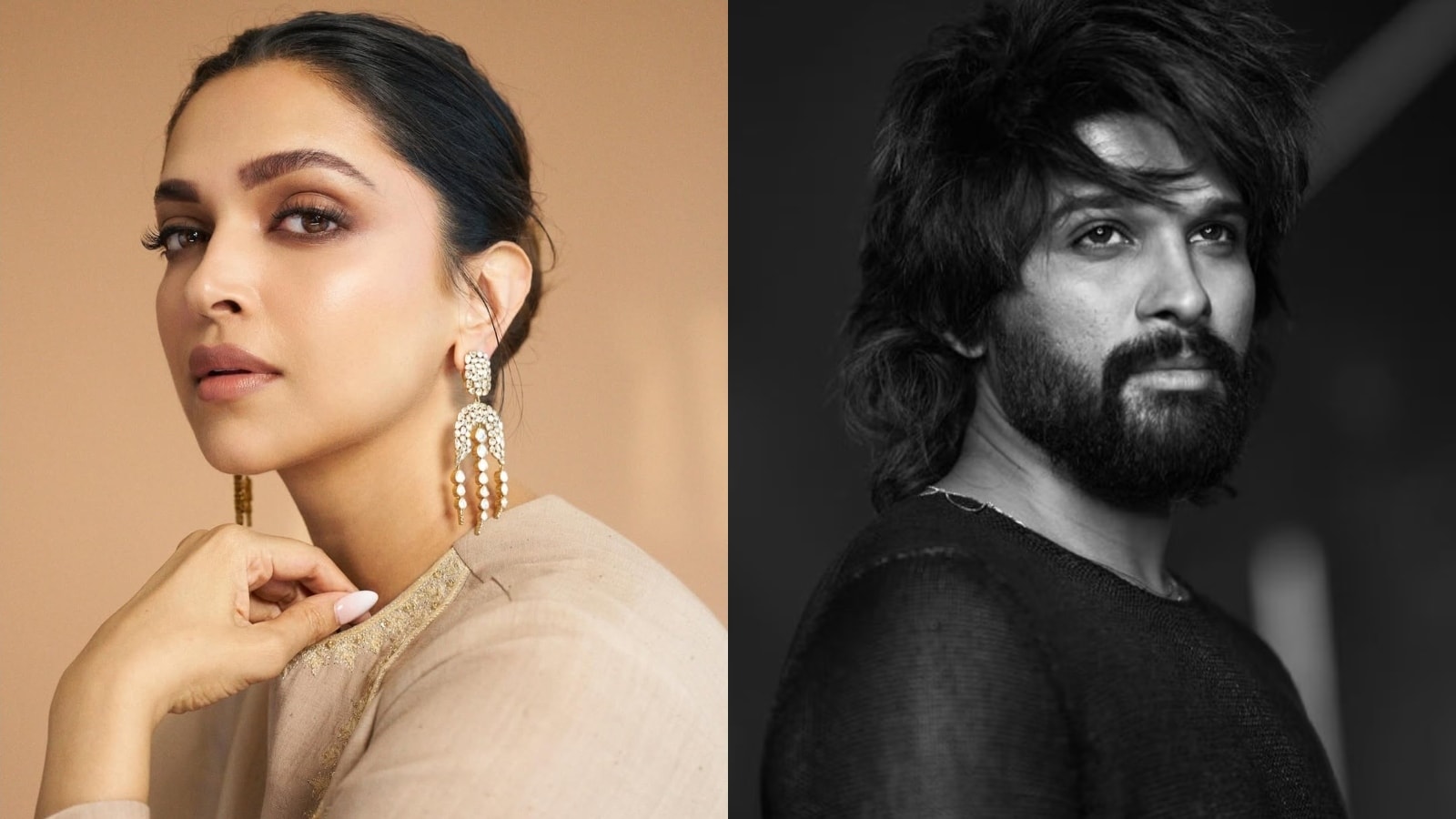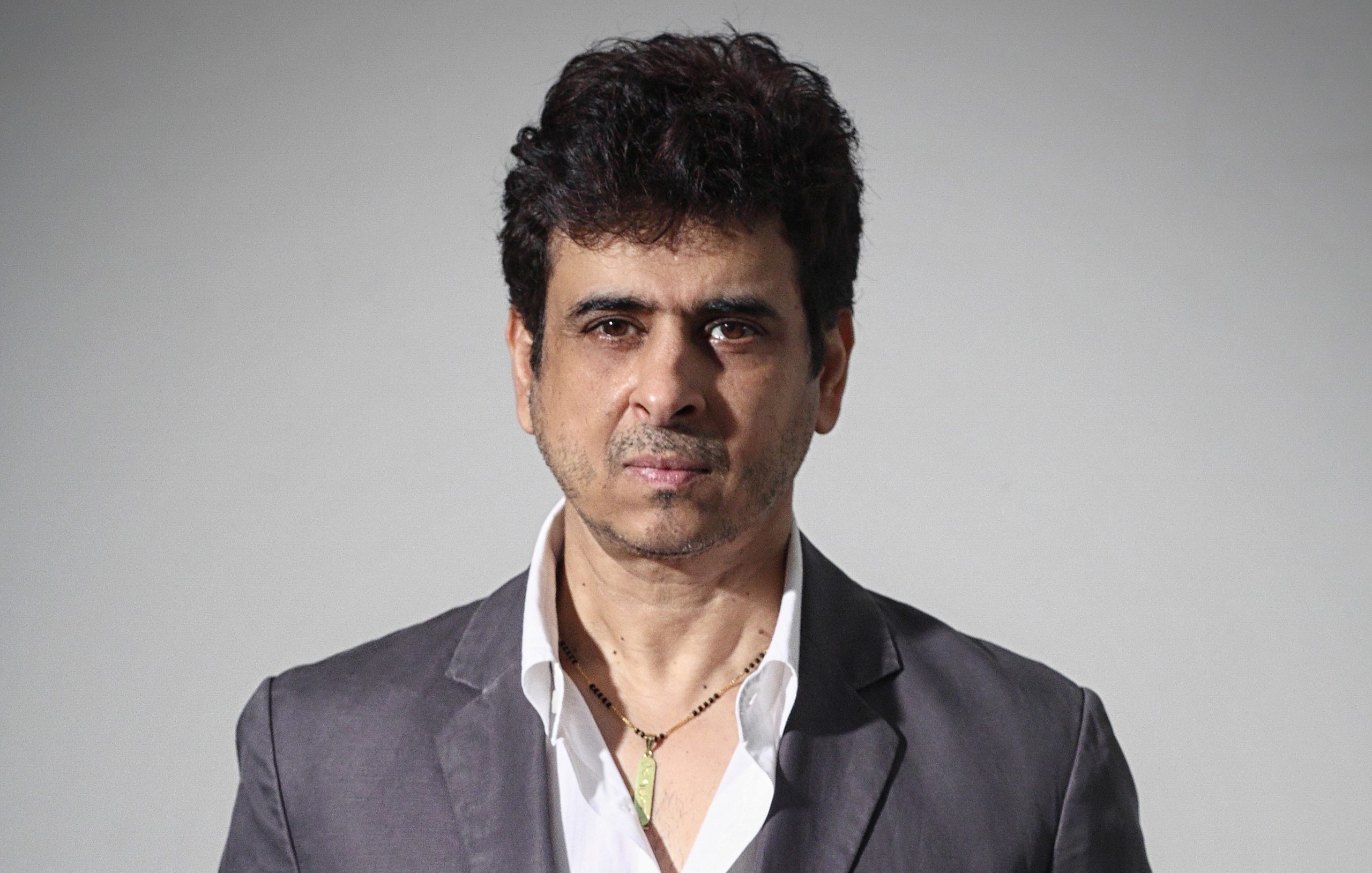
“We are re-recording Dhoom and Phir Dhoom” – Palash Sen
When you think or talk about pop music in India, the one band whose name instantly pops up in your mind is Euphoria. As the founder and lead vocalist of Euphoria, Palash Sen has managed to ensure that the band has a special place in the hearts of all those who have grown up listening to its music. While the music of Euphoria struck a chord with those who discovered it in the late ‘90s and early 2000s, it also resonates with younger listeners who are hooked on to the songs churned out by the band today.
Palash laid the foundation for the band in the year 1988. A decade later, ‘Dhoom’, the debut album of Euphoria, hit the stands and took the nation by storm. If we go by the year of the formation of the band, Euphoria completes 35 years of its existence this year. And, if one takes the release date of the band’s debut album into account, it completes 25 successful years this year.
In this interview, Palash talks about the journey of Euphoria, operating as a completely independent band, stories behind the iconic songs, collaborating with multiple artists, why India needs a well-structured independent music industry, admiration for KK, memories of Pradeep Sarkar, re-recording the older albums of the band and more.
Back in the day, you worked with mainstream music labels like Archies Music, T-Series and Sa Re Ga Ma. Since the last few years, Euphoria has been releasing music independently. When you release music independently, you have to look after several things including marketing and distribution. How has been this experience like?
Working with the labels taught me a lesson that I will never forget. It was a bitter lesson. When you work with a label, you have to give up on all your rights. You don’t get royalties. The band has not made a single rupee from all the albums it made with the labels. So much effort goes into creating an album. The label tells you that you will earn through concerts. During the pandemic, there were no concerts and the band was not earning from any source. Artists should get money from recorded music also. Euphoria is a true-blue independent band. All the so-called independent music is being released through labels. We are one of the very few bands or artists who are doing everything ourselves. The returns are almost nothing but it is a good precedent to set. I own my music and that’s a good thing. After a couple of years, it might start paying me. Independent music is independent only if you release it yourself.
You also get a lot of freedom when you create and release music independently.
That’s the best part of doing things independently! Sometimes, labels ask artists to give them songs they have already created. Even when the label doesn’t interfere with the music creation process, they end up owning it. When the money starts coming in, a majority of it goes to the label. Even when you get creative freedom, you don’t get economic freedom.
We see a lot of fresh music being released on Euphoria’s official YouTube channel. ‘Ishq Mera… Jaane Khuda’, the last song to be uploaded on the channel, had a haunting feel to it and sounded different from anything we have seen the band churn out so far.
You are right! We went into a completely new direction with this song. I had never composed a song like this. The thought process behind the song was quite new and fresh. The other songs we released in the recent past were written and composed over the last 5-6 years. ‘Ishq Mera…Jaane Khuda’, however, was composed sometime in the beginning of this year. I recorded the track and Prashant (Trivedi) programmed it incredibly well. I had never written such a song before. We have also released ‘Ishq Mera…Jaane Khuda’, the film. The whole package sounded very fresh and different.
You dedicated ‘Ishq Mera… Jaane Khuda’ to KK. Both KK and you grew up and started your musical career in Delhi. During your college days, you used to win most of the singing competitions. Once, KK won a competition and you came second. That day, you didn’t feel sad but were happy to lose out the trophy to KK, an artist whom you greatly admired. Once KK left for Mumbai, the people in the advertising industry in Delhi were looking for a suitable replacement and that’s how you started getting a lot of work in advertising. What has been your fondest memory of KK?
Over the last one year, I lost two of my closest friends, KK and Pradeep Sarkar. While Pradeep da and I worked on many things together, KK was a friend from a time when I was much younger. He was somebody I admired and looked up to. I was not just a fan of his singing but also the way he conducted his life. He will always be a source of inspiration not just for me but for everybody.
Whenever I speak about him, I speak in the present tense. KK’s voice and his life will always be immortal. He is always going to be around. I strongly believe that KK would never go away. The song is dedicated to KK and the film, which is of the same name, is dedicated to Pradeep Sarkar. Whatever filmmaking I know today is because of Pradeep da. KK and Pradeep da are two people this country should never forget as they were path breakers. I will always be indebted to them for everything they have taught me.
From ‘Maeri’ to ‘Mehfuz’, Pradeep Sarkar directed so many iconic music videos for Euphoria.
It all started with ‘Dhoom’ and ‘Maeri’. Very few times, you see a songwriter and a director having the same vision. Pradeep da and I had the kind of understanding that was rare. Those videos will be legendary as we were in sync with each other. He added a lot of value to Euphoria’s journey.
Euphoria was created in the year 1988. Ten years later, the band released its first album. If we take the release of the first album into account, the band completes 25 years of its existence this year. Sometime in the ‘90s, you composed 35 original songs in English. You picked four songs from it and created a demo tape to be given to record labels. One of the individuals you had to face rejection was from RV Pandit, the owner of Pan Music, who said that you can’t sell English music in India.
I felt very angry when he said that. However, later I realized that he gave me the best advice ever. Whatever he told me, helped me tremendously in life. In India, most people do not communicate in English. These days, in fact, a lot of regional content is coming up and people across the country are lapping them up. I thought about what Mr. Pandit told me for a while and decided to write Hindi lyrics for the tunes I had composed. That one idea given by him changed the course of my career.
After all these years, how do you look back at your journey? Do you think you have managed to achieve all that you had set out to?
Mostly yes. I never chased personal goals. I don’t take myself that seriously. I don’t think I have done anything that is so phenomenal that I should go crazy about it. It’s a journey and you learn something every day. You keep evolving every day. You should try to make a difference to people’s lives and spread happiness. I have a given a lot of happiness to a lot of people and I feel happy about that. I don’t know if I have achieved all that I had set out to achieve. One of the things I always wished for is our country to have an independent music industry. Even now, it doesn’t have one. We have a film industry of which music is a small part.
Musicians know that they are a part of a system that is controlled by somebody else. Till we have a proper independent music industry, I don’t think the musicians will be treated fairly. Concerts in our country don’t happen at an international level. I was one of the pioneers in changing how concerts happened. Euphoria’s concerts set a benchmark for things like how light and sound should be used and how band members should be treated.
Before Euphoria came in, artists were not treated with a lot of respect. The professionalism with which concerts started happening helped artists across the board. A lot of things need to change. A lot of artists lip sync on stage. We don’t have a system in place where live music can be put out on TV and monetized. We are still taking the shortcuts. These are some of my dreams that have remained unfulfilled. There has to be an organic system which is controlled by the musicians. Even if you put up a song on a streaming site, you have to market it. The algorithm is not fair or merit-driven.
You had stated in an interview that acting was your first love. You acted in a few films like ‘Filhaal…’ and ‘Mumbai Cutting’. Do you wish you had explored acting more elaborately?
After seeing the condition of Bollywood, no! (laughs). The situation in the film industry is the same as the music industry. A few people control both the movie and music industry. There are these groups and camps and they control everything. It’s not a fair game. Being a doctor, I know things can be much more fair, honest and organic. I enjoy acting in my music videos. I am not conscious in front of the camera at all. I have never been greedy in life. I have always believed that I don’t need what I don’t have.
When you were in school, your father gave you a few records of Elvis Presley. That turned out to be a life-changing moment for you.
Elvis was the greatest of them all! When you saw him performing or singing, it was magical. I am glad I could achieve it in a small way. I don’t know what my father had in his mind when he was giving me those records. Maybe, he was just trying to make my knowledge wider. Elvis taught me a lot. Freddie Merchant took it further. When you go to the stage, you need to perform. Most singers do not realize that the stage is not for playback singing.
Did you have any musical training while you were in school or college?
I am the most uneducated musician in the country (laughs). I have had no training in music. My father used to tell me that I should observe all the singers I admire. He told me that I should listen to their music and sing with them. By doing this, he stated, that my voice will get better and I will get to know about all the techniques. That’s all I did. Some of the musicians I observed and learnt from were Elvis Presley, The Beatles, Led Zeppelin, Pink Floyd, Freddie Mercury and Billy Joel. I was not pursuing Indian music at that time. Most of us who grew up in the ‘90s had western aspirations. I was listening to rock and pop music.
From India, the two people I used to follow were R.D. Burman and Kishore Kumar. Both of them had a western way of approaching things. After a point, I started listening to all kinds of music. At home, my father had all sorts of records. Listening to a wide variety of music and singings songs by my favourite artists was my training. My dad was not too keen on me pursuing classical music. Once you get into classical music, you have to follow many dos and donts. My dad wanted me to be a spontaneous singer. He used to say, “apni tarah se, dil se gaao”. However, sometimes I do lament the fact that I don’t have a lot of knowledge about music. Somebody like Shankar Mahadevan has knowledge of raagas and he is the most phenomenal singer.
The guitar has been your choice of instrument all these years. Do you remember the first ever guitar you bought?
Yes! I was 21-22 years of age and had gone to Goa for a holiday with my family. My dad used to play the harmonium and my chacha used to play almost every instrument out there. One day, chacha teased me by saying, “Polly, tujhe koi bhi instrument bajana nahin aata”. I immediately thought of buying a guitar. We went to a local shop and bought a Hovner guitar. It was a local brand. I brought it to Delhi and started playing it. That guitar helped me to compose and was with me from 1987 to 1999. ‘Dhoom Pichuk’ was composed on that guitar. I had broken a string of the guitar. Back then, you had to buy the entire set of strings. Since I didn’t have enough money to buy a new string set, I composed all the songs of ‘Dhoom’ on a five-string guitar.
Who were the founding members of Euphoria?
There were the Shroff brothers and Sunil Varman. People kept on coming and leaving. From 1988 to 1999, we were just having fun. The real Euphoria came into being 1998. We got the right musicians in the band. That’s when it started sounding like a band. We had many changes in the line-up over the years. Since 2017, we have had the most stable line-up.
In the ‘90s, you and your band members were giving an interview to a TV channel. Anil Mulchandani, the owner of Archies, saw that interview and called you up for a meeting. He gave you the opportunity to create your debut album. 2.5 lakh was the budget allotted for the album and 1 lakh rupees were paid in advance. How did you manage to put together an album in just 11 days?
My fights have always revolved around money (laughs). We recorded the album in May or June in the year 1998. Basically, there is always the dream of having an album on your own. We never had the money to put together an album. When Anil Mulchandani reached out to me, I called my bandmate and best friend DJ (Debajyoti Bhaduri). He said we should take up this opportunity but we will have to finish the album very fast. We booked a studio in Delhi called Synthesis. At that time, Synthesis was charging Rs. 1600 for an hour. To finish the album in 11 days, we had to work 18-20 hours every day. Before we started working on the album, we were extremely prepared. It was a very tough situation but thrilling at the same time.
I always ask God, “mere saath hi hamesha paison ki problem kyon hoti hai?” (laughs). If I had some more money, I could have helped other musicians and work towards putting a proper system in place. Most of our albums were recorded while adhering to time-bound restrictions. When we started making money, I put together a studio called The Clinic. I don’t give out the studio on rent to anybody. We only use it to create our own music.
Back in the day, artists would release full-fledged albums. However, if there were eight songs in the album, they would make music videos out of only one or two of them. Because of this, the rest of the songs in the album wouldn’t get their due.
It was the era of MTV and Channel V. You could spend money on making 1-2 music videos and those songs would end up becoming famous. The audio-visual appeal of the song mattered to the audience. We have made four music videos out of our album ‘Sale’. Even though it’s an album, we are treating every song as a single. We were the only band that would offer the listeners featuring diverse songs. Music labels often force artists to repeat themselves or reuse a formula. The system tends to support the ordinary more than the people who are trying to think out-of-the-box.
In an interview you had stated that you were trying to create a tabla-dholak rock sound with Euphoria.
We have always been a Hind Rock band. In our songs, you get to hear tabla, dholak, guitar and drums. In our country, there are all kinds of foods, dialects, languages, dresses and thoughts. That is the way our country is. We have different colours. We have unity in diversity. The music of Euphoria serves as a symbolic representation of that.
Your family came from Burdwan in West Bengal. Though you grew up in Delhi, your roots are in Bengal. Did you ever think of composing a song in Bengali?
‘Dhoom Pichuk Dhoom’ had Bengali lyrics in it. My mother comes from Jammu. ‘Maeri’ had Punjabi lyrics in it. There were some Tamil verses in ‘Khamakha’. I have always used different Indian languages in our songs.
Though you have sung for only a few films, most of those songs have been memorable. My favourite is ‘Main Kaun Hoon’, the song you sung for the Sanjay Dutt – Bipasha Basu – Kunaal Kapoor starrer ‘Lamhaa’ (2010).
Mithoon is one of the finest composers in our country. He is a very intense person. When he asked me to sing that song, I felt honoured. He uses voices which are slightly controlled. They sing in a certain tone or scale. I sing rock vocals on everything. When he asked me to sing that song, I had to change my style. My voice had a husky tone to it and it was controlled and intense at the same time. It was one of the most memorable experiences of my life. I feel it’s one of his best compositions. The song also had some incredible lyrics.
From Shubha Mudgal to Shreya Ghoshal, you collaborated with several celebrated artists over the years.
I was a big admirer of all these people. In the last couple of months, we have recorded songs with some of the best voices of the country. We have recorded a song with Shubha ji which will come out soon. It is the third part of the story which started with ‘Dhoom’. We have done songs with Shruti Pathak, Shalmali Kholgade and Amrita Singh. I hope to do a song with Sunidhi (Chauhan) soon.
In the year 2010, two prominent musicians, who were a part of Euphoria, left the band. How do deal with situations like these?
The effect is always emotional. Nothing or nobody in the world is indispensable. When you spend a lot of time with someone and they are not a part of your personal or professional space anymore, you feel emotionally hurt. Newer talent brings in new thoughts and direction. The kind of music we did after 2010 was very different from what we did prior to that. I will always grateful to those who were a part of the band and am equally grateful to those who are a part of it now. The core thought and spirit of the band has been the same all these years.
Most of the songs by Euphoria have a sense of melancholy in them.
I romanticise separation and sadness (laughs). Unrequited love is the only real form of love as it is not conditional. Marriage is the requited kind of love but it also becomes a responsibility. That’s what society is all about and that’s okay.
In 2001, you stopped practicing medicine actively.
Yes, I could not pursue medicine actively as we were touring all the time. However, I still have my clinic. I can never stop practicing. Years back, I had a deal with my mother. She told me that the day you leave medicine, you have to leave music as well. For two and a half years, I was attending to patients all the time. I will always be a doctor.
Interestingly, both your clinic and your studio are named The Clinic.
Yes! Jo clinic se pareshaan ho jaate hain, woh studio mein aa jaate hain aur jab studio mein bore ho jaate hain, toh clinic mein aa jaate hain.
Kinshuk Sen, your son, studied neuro science and is now working as an actor.
He finished his studies his studies in UCLA in neuro science. He has done a Hollywood film called ‘In A Silent Way’. Aditya Chopra cast him as one of the lead actors in ‘Come Fall In Love’, a Broadway Musical based on ‘Dilwale Dulhaniya Le Jaayenge’. He is now doing ‘Monsoon Wedding’, a musical version of the film which is being made by Mira Nair herself. He is pursuing acting actively and he wants to work in Hollywood. He got all this work on merit. He never told anybody he was my son.
You got the opportunity to work with Gulzar when you sung the two songs (‘Dil Ke Sannate’ and ‘Sola Singaar Karke’) in ‘Filhaal…’ (2001). He also wrote two songs (‘Roshni’ and ‘Dil’) for your album ‘Mehfuz’ (2006). Interestingly, his daughter, filmmaker Meghna Gulzar, suggested the name ‘Mehfuz’ for your album.
Meghna was making a film called ‘Mehfuz’. The film didn’t get made and I asked her if I could use it for my album. She was gracious enough to let me use the name for our album. My greatest joy of working in Bollywood is Gulzar saab. I had always admired him. I had heard his poetry for years. Getting the chance to work with him was unbelievable. There are two people in the film industry I feel blessed to have met, Gulzar saab and Mr. Amitabh Bachchan. Education and humility are how one can keep oneself relevant.
‘Mehfuz’ came out in 2006. This was a time when albums were phasing out. How did you deal with change?
We were dealing with a lot of other things then. There was some strife in the band. We were doing a lot of concerts. In 2008, we released this album called ‘Redhoom’. It was a compilation of the songs we had made in the ten years. Once the people exited the band, we started doing our recording work all over again.
Let’s talk about some of the songs specifically. ‘Sha Na Na’ from ‘Dhoom’ was the first Hindi song you had composed.
At that time, I thought I couldn’t write in Hindi. I composed the tune and my sister Dahlia (Sen Oberoi) wrote the lyrics. I always hum or sing a tune with ‘Na’. She used ‘Na’ as a rhyming word. It was based on my wife Shalini, whom I would refer to as Sha, as she would say a ‘no’ to everything. This is how the song came to be known as ‘Sha Na Na’.
‘Dilli’ from ‘Dhoom’ was like a love letter to the city of Delhi.
I have always loved the city. My father is from Varanasi and mother is from Jammu. I was born in Lucknow but we shifted to Delhi soon after. I got educated in Delhi and this city gave me a life. I have my clinic here. Delhi is my jaan. I feel it’s the best city in the entire country. This city is my identity. Many songs have been made on Mumbai and other cities but not many musicians have made songs on Delhi.
How did you think of getting Shubha Mudgal on board for ‘Dhoom Pichuk Dhoom’?
My sister Dahlia has been a corporate lawyer. Shubha ji happened to be her client. In the middle of the song, I needed a response that would be given by the girl. I was sure about having Bhatiyali lyrics there. Shubha ji came and sang the song like a dream. She told me that it was her gift to me.
‘Maeri’, which is one of the biggest hits by Euphoria, was a tune came to you in the middle of the night.
Yes! I remember the time very well. It was 3:30 a.m. I woke up with the tune playing in my head. I remember calling up my childhood friend Jaideep Sahni. He wrote the Punjabi lyrics and I wrote the Hindi lyrics. I never thought that ‘Maeri’ would turn out to be the anthem it is today. In Jammu, mother is referred to as maaye or maaeri. I used to share my secrets with my mother. In the song, I am telling my mother about this girl I loved and lost.
‘Ab Na Jaa’ from ‘Gully’ has a timeless appeal to it.
‘Ab Na Jaa’ was actually created for ‘Filhaal’. It was dedicated to the character played by Sushmita Sen in the film. I was supposed to sing one song in ‘Filhaal’. Instead of waiting for Anu Malik to compose something for me, I decided to come up with a song myself. Meghna said that he might feel bad and let him create a song for you. Since the song was ready, I decided to use it in my album. After ‘Maaeri’, if there is one Euphoria song the entire country likes listening to, it is ‘Ab Na Jaa’.
‘Mehfuz’ has a rather interesting blend of melancholy and comfort.
The thought behind ‘Mehfuz’ was my dad. He passed away when he was very young. All his fears and thoughts remained mehfuz within me. I carried on the legacy. People will go out of your life but their memories will remain mehfuz within you.
How would you describe the current line-up of Euphoria?
Everybody in the band now is the greatest musician I have known. Debajyoti Bhaduri is the best bass player I have heard. Aditya Shankar Benia is the best guitar player I have seen. Vishal Mehta is the best drummer. Prashant is a phenomenal tabla player. Rakesh is an incredible dholak player. Vishal Dixit is a great keyboard player. Kyna Sen and Deboshree Basu are wonderful backup vocalists. We understand each other and stay like a family. We sound good because we do it together.
Apart from the pop albums and film music, Euphoria has done several other interesting things as well. In 2012, the band released a devotional album in the form of ‘Sharnaagat’.
That’s what I have always done. I am an artist. I do things my way. I always want to push the envelope. You cannot be happy with what you have already done or accomplished.
In the past, Euphoria had contributed to a couple of Bollywood soundtracks. Are you open to the idea of putting together the entire soundtrack for a Hindi film in the future?
We will be very happy to do that. The full soundtrack of ‘Aisa Yeh Jahaan’ (2015) was done by Euphoria. When we work on a film, the director has to sit with us while we create the music and not tell us what to do. The film is a director’s vision, so we have to work in a collaborative manner.
When you were in the tenth grade, you participated in a musical organized in your school called ‘The Whiz’ which was based on ‘The Wizard of Oz’. While you played the role of the Tin Man in the musical, Shah Rukh Khan, who was your schoolmate and studying in the ninth grade then, played the Whiz.
I did playback for him in that musical. He had two songs in the musical but he couldn’t sing. Both those songs ended up being sung by me from the wings. He used to say, “when I start acting in movies, Polly will sing for me.” At that time, we used to look down upon Hindi cinema. Shah Rukh was extremely intelligent and I never thought he would be an actor. I wanted to be a doctor and never thought I would pursue music professionally.
You have directed many of the music videos by Euphoria in the recent past. Do you have plans to direct a film?
I have directed two short films also. The first two films were made for Royal Stag Barrel Large Short Films. The third one is ‘Ishq Mera…Jaane Khuda’. The fourth film is a short film which features Kinshuk. It was shot in Turkey and is in English. I have started enjoying the process of being behind the camera a lot. There is definitely an interest to direct a film. I would love to direct music videos for others as well.
What are you doing next?
We are re-recording ‘Dhoom’ and ‘Phir Dhoom’. Besides certain elements, nothing would be changed. We will try to re-record the other albums too. We didn’t have the publishing rights for the earlier albums. Now, the intellectual property rights have come back to me, so I can re-record these tracks. I keep telling artists, “apne rights waapas lo!”. In the ‘90s, contracts were used to be one-sided. Every artist should take back their rights and re-record their albums. Those songs would work much better when they are re-released.
Artists must get their due. This is something I have always been concerned about. If the big industrialists of our country can put a music system in place, it would work well for everybody. A few years back, I wrote a letter to Akash Ambani about this. A corporate can hire the right people to control music. Today, Bollywood is mostly making remixes. Companies don’t want to work hard and spend money on creating original music. Many talented singers, musicians and writers out there are waiting for the right opportunity. There can be some good A&R companies. Now, music is just being shoved down people’s throat. Music is very important for the infrastructure of every country. The entrepreneurs in the country should be looking at it more seriously.
We will continue to create music which is different from anything we have done in the past. With time, we have explored different emotions and styles through our music. A lot of people come to me and ask me to make another ‘Maeri’ or ‘Aana Tu Meri Gully’. What I tell them is that a song cannot be made again. And, when you try to recreate a song, just like what everybody is doing today, you kill its essence completely.
Publisher: Source link

